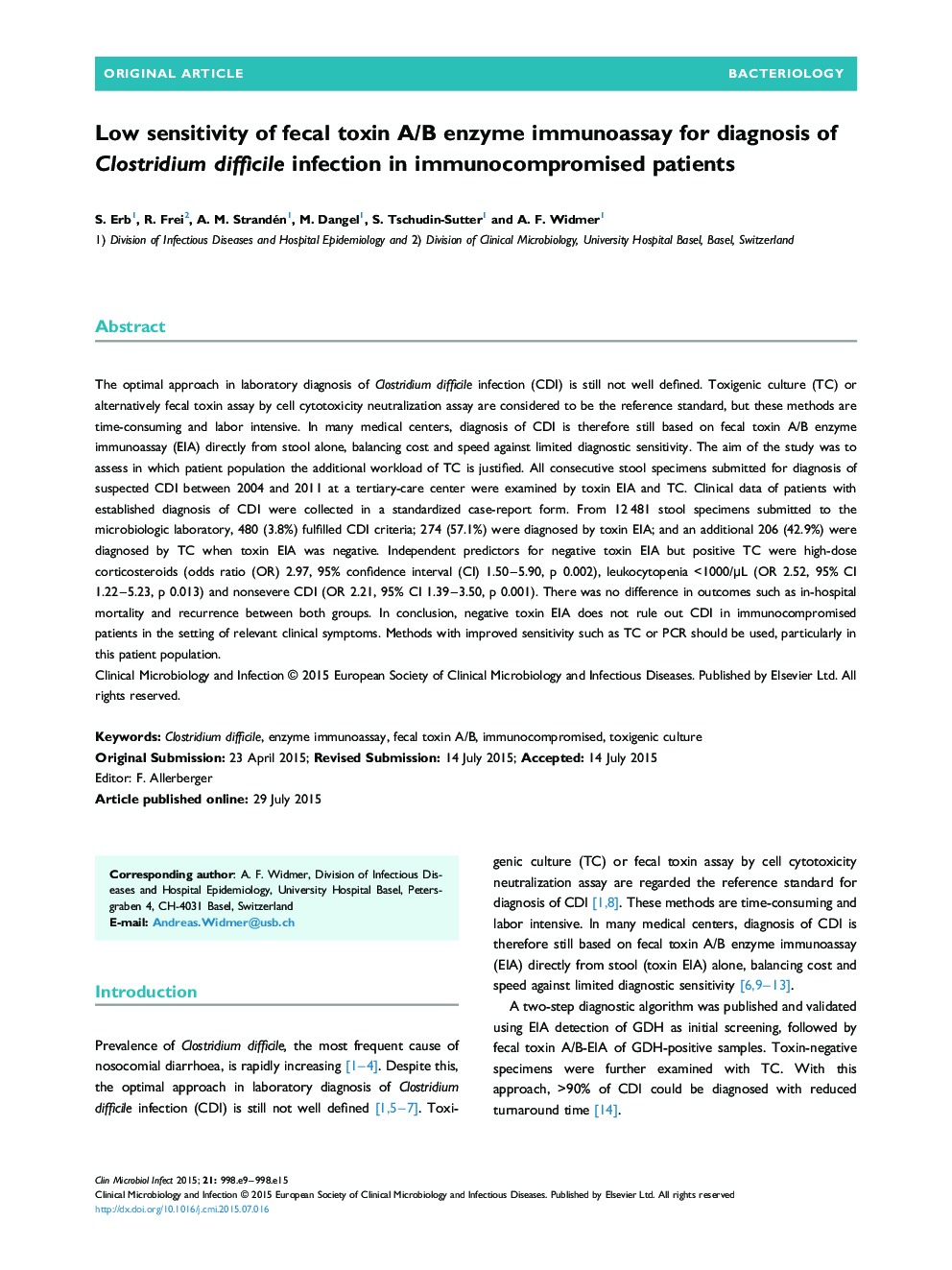| کد مقاله | کد نشریه | سال انتشار | مقاله انگلیسی | نسخه تمام متن |
|---|---|---|---|---|
| 3396405 | 1222149 | 2015 | 7 صفحه PDF | دانلود رایگان |
عنوان انگلیسی مقاله ISI
Low sensitivity of fecal toxin A/B enzyme immunoassay for diagnosis of Clostridium difficile infection in immunocompromised patients
دانلود مقاله + سفارش ترجمه
دانلود مقاله ISI انگلیسی
رایگان برای ایرانیان
کلمات کلیدی
موضوعات مرتبط
علوم زیستی و بیوفناوری
ایمنی شناسی و میکروب شناسی
میکروب شناسی
پیش نمایش صفحه اول مقاله

چکیده انگلیسی
The optimal approach in laboratory diagnosis of Clostridium difficile infection (CDI) is still not well defined. Toxigenic culture (TC) or alternatively fecal toxin assay by cell cytotoxicity neutralization assay are considered to be the reference standard, but these methods are time-consuming and labor intensive. In many medical centers, diagnosis of CDI is therefore still based on fecal toxin A/B enzyme immunoassay (EIA) directly from stool alone, balancing cost and speed against limited diagnostic sensitivity. The aim of the study was to assess in which patient population the additional workload of TC is justified. All consecutive stool specimens submitted for diagnosis of suspected CDI between 2004 and 2011 at a tertiary-care center were examined by toxin EIA and TC. Clinical data of patients with established diagnosis of CDI were collected in a standardized case-report form. From 12â481 stool specimens submitted to the microbiologic laboratory, 480 (3.8%) fulfilled CDI criteria; 274 (57.1%) were diagnosed by toxin EIA; and an additional 206 (42.9%) were diagnosed by TC when toxin EIA was negative. Independent predictors for negative toxin EIA but positive TC were high-dose corticosteroids (odds ratio (OR) 2.97, 95% confidence interval (CI) 1.50-5.90, p 0.002), leukocytopenia <1000/μL (OR 2.52, 95% CI 1.22-5.23, p 0.013) and nonsevere CDI (OR 2.21, 95% CI 1.39-3.50, p 0.001). There was no difference in outcomes such as in-hospital mortality and recurrence between both groups. In conclusion, negative toxin EIA does not rule out CDI in immunocompromised patients in the setting of relevant clinical symptoms. Methods with improved sensitivity such as TC or PCR should be used, particularly in this patient population.
ناشر
Database: Elsevier - ScienceDirect (ساینس دایرکت)
Journal: Clinical Microbiology and Infection - Volume 21, Issue 11, November 2015, Pages 998.e9-998.e15
Journal: Clinical Microbiology and Infection - Volume 21, Issue 11, November 2015, Pages 998.e9-998.e15
نویسندگان
S. Erb, R. Frei, A.M. Strandén, M. Dangel, S. Tschudin-Sutter, A.F. Widmer,